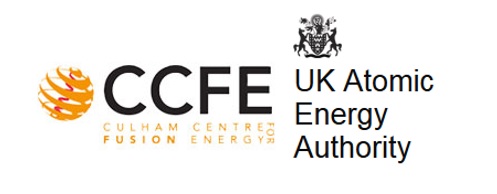Nuclear Fusion 27 - Issues Involving The Brexit And Nuclear Fusion Research In The U.K
I have discussed the possible impact of the Brexit vote on the nuclear program of the U.K. That post was dedicated to nuclear fission. There are also issues about the future of nuclear fusion research in the U.K. and Europe related to the Brexit.
Culham Centre for Fusion Research (CCFR) is the national laboratory for the U.K. for fusion research. It is located at the Culham Science Centre in Oxfordshire. The CCFR is owned and operated by the U.K. Atomic Energy Authority (UKAEA).
The current focus of the Centre is the Mega Amp Spherical Tokamak (MAST) experiment. This experiment is funded by the U.K. Engineering and Physical Sciences Research Council and by the European Union under the Euratom framework.
The Centre also hosts the Joint European Torus (JET), the world's largest magnetic fusion experiment on behalf of the E.U. European fusions scientists collectively share the use of the JET which is located next to the U.K. fusion experiment at the CCFR. The JET facility employs over five hundred people with over three hundred and fifty European scientists visiting the facility each year.
With respect to the Brexit vote, the CEO of the UKAEA pointed out that the U.K. has been on the cutting edge of fusion research for fifty years and that "It would be bizarre and extreme for the UK to just leave these projects." The U.K. has not yet commented on its plans for future involvement in the Euratom framework which will have to include the future of the JET. If the JET is decommissioned, there will be almost ten thousand cubic feet of radioactive waste left over which will cost in the neighborhood of three hundred and seventy million dollars to deal with.
The JET experiment has logged a number of important milestones in the quest for nuclear fusion. Recently, JET has been used to run experiments that are aimed at helping to build the ITER fusion reactor in France. The continued operation of JET is critical to the ITER project. JET was scheduled to be concluded in 2018 but delays in the ITER project have resulted in plans to keep JET running past 2018. This is one of the issues that must be dealt with during the Brexit negotiations.
In my previous post about the Brexit, I mentioned that there has been a discussion of continued U.K. involvement in the Euratom framework for nuclear cooperation among European nations. While Euratom is not one of the founding documents of the European Union, nonetheless, the U.K. exit from the E.U. will significantly impact its participation in Euratom. One of the possibilities being discussed is to have the U.K. continue to participate in Euratom and JET for a few years after leaving the E.U. in order to allow time for negotiating an alternative framework for the U.K. to participate in nuclear cooperation with European nations after the U.K. E.U. exit.
Some critics of the Brexit point out that legally, Parliament must vote to leave the E.U. While the Prime Minister has said that she will abide by the Brexit vote, she does not have the legal authority to remove the U.K. from the E.U. The backlash of the U.K. public against the anticipated problems associated with the Brexit might result in Parliament refusing to vote for the exit. This would certainly be to the benefit of the JET experiment and the work on ITER.
